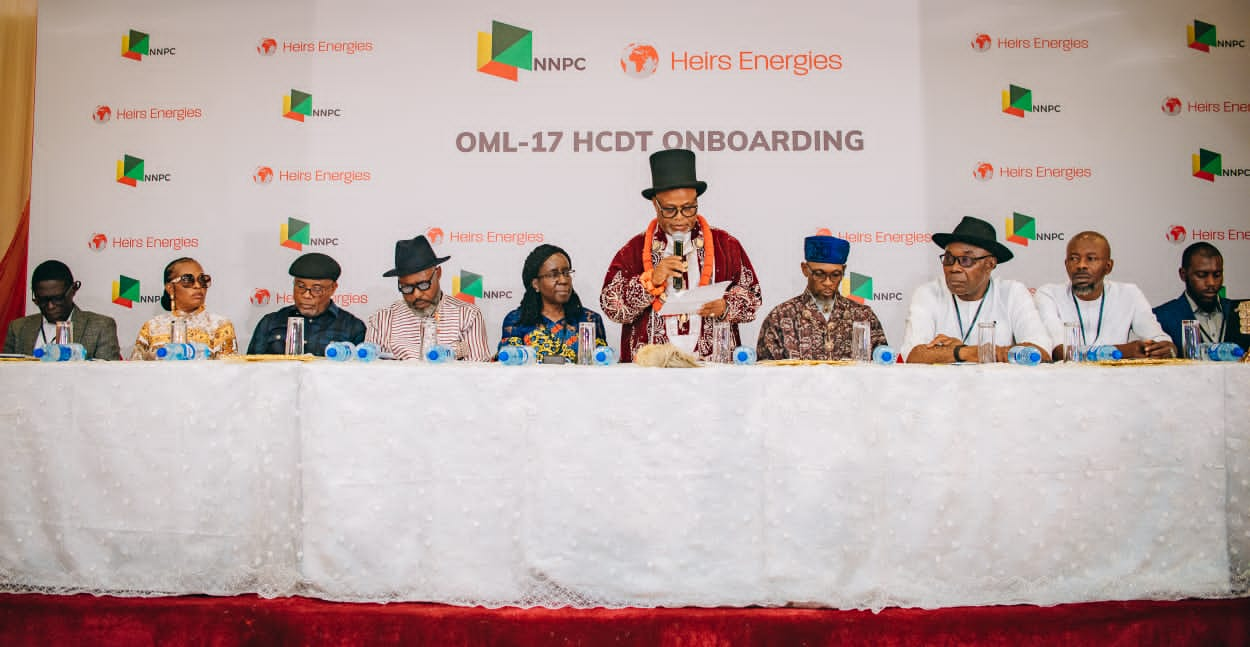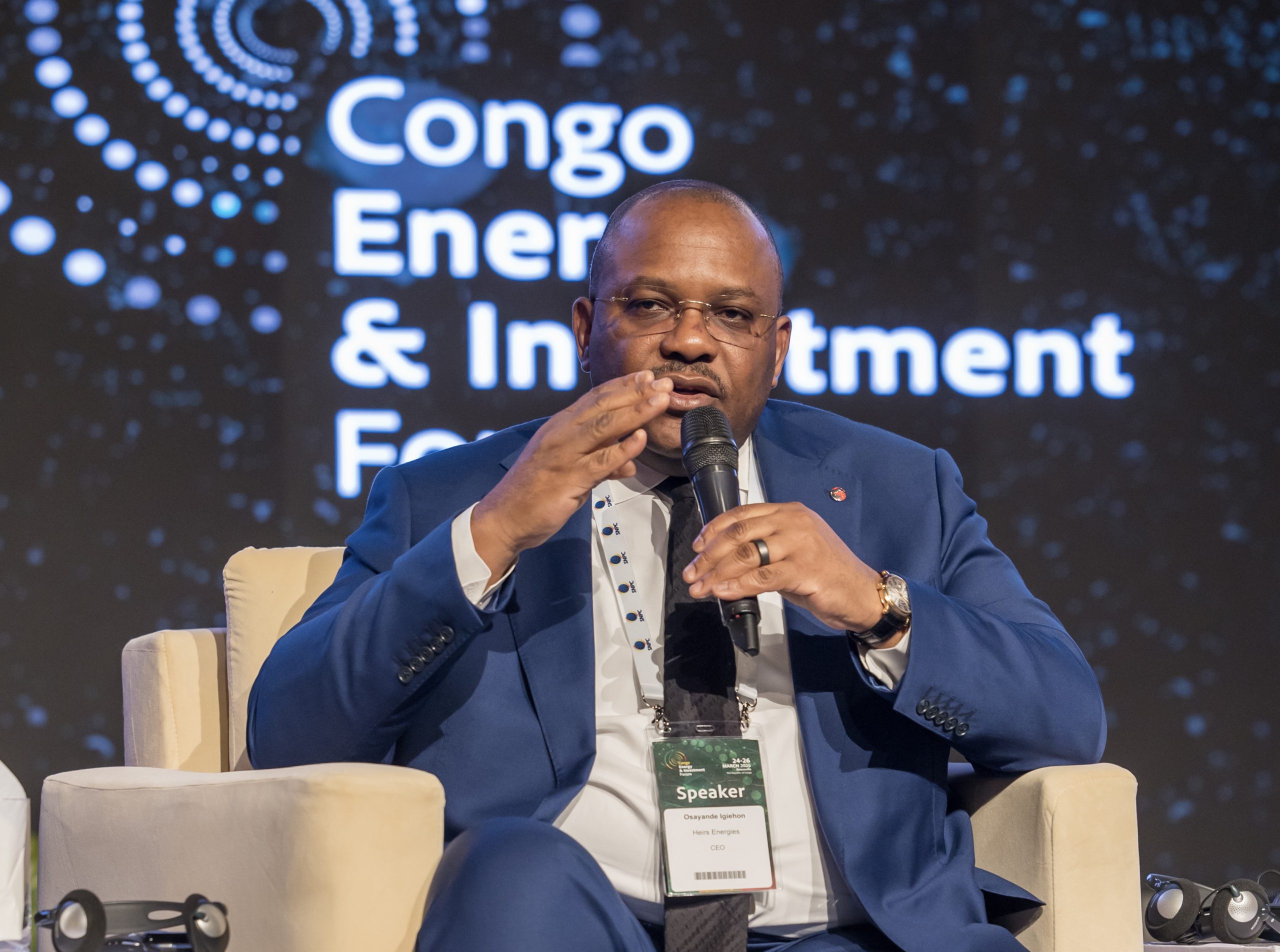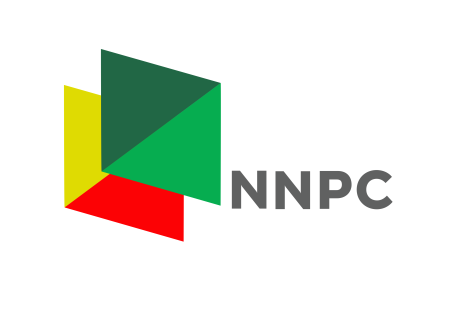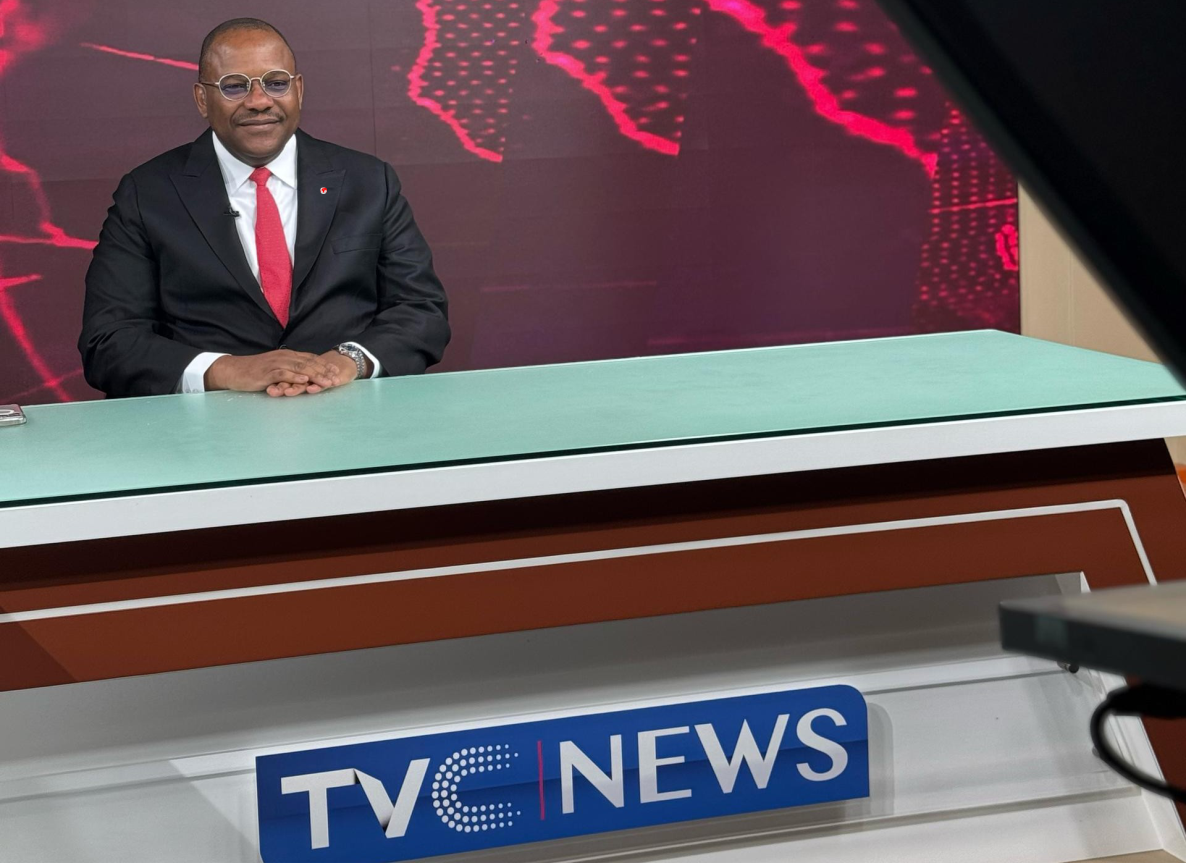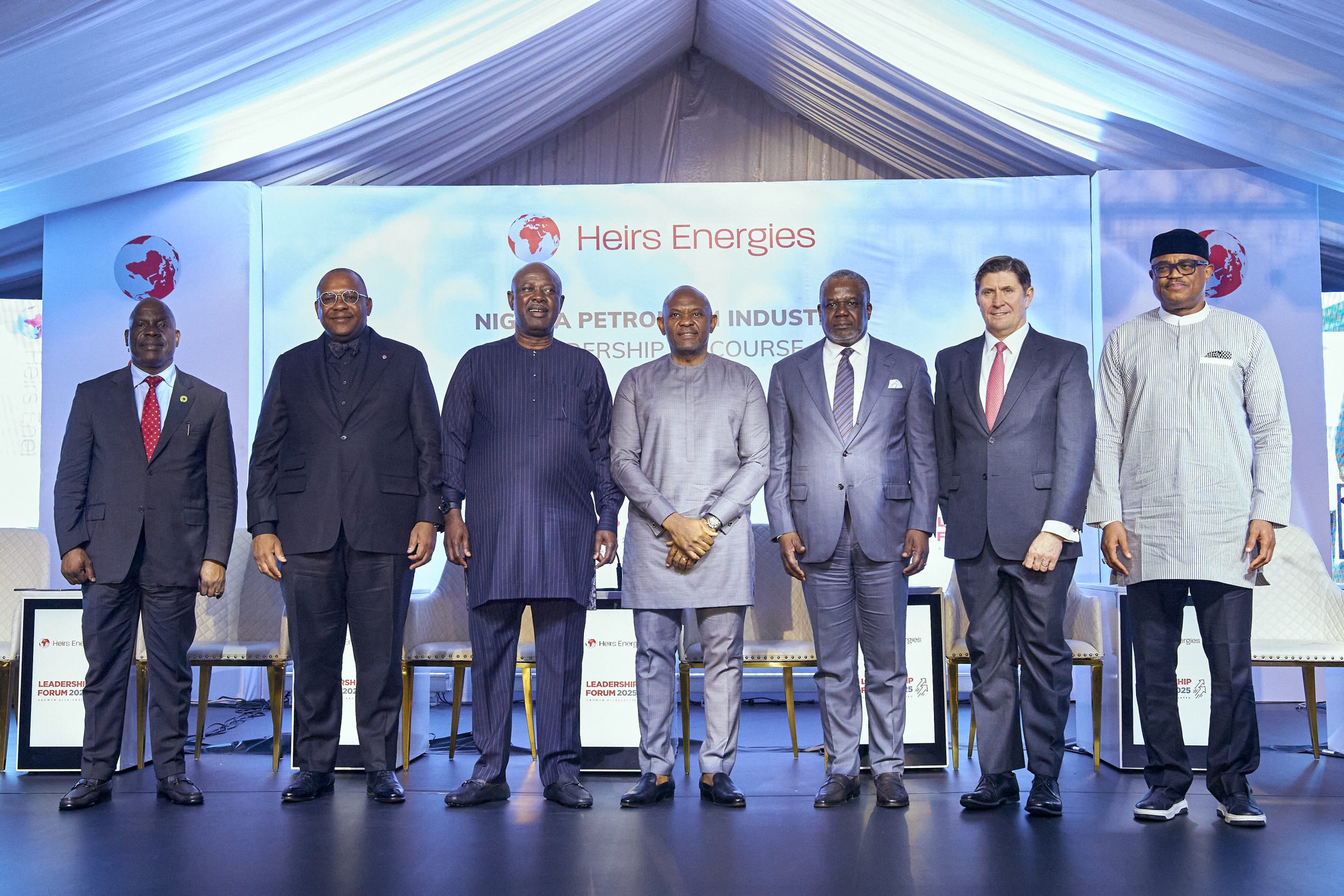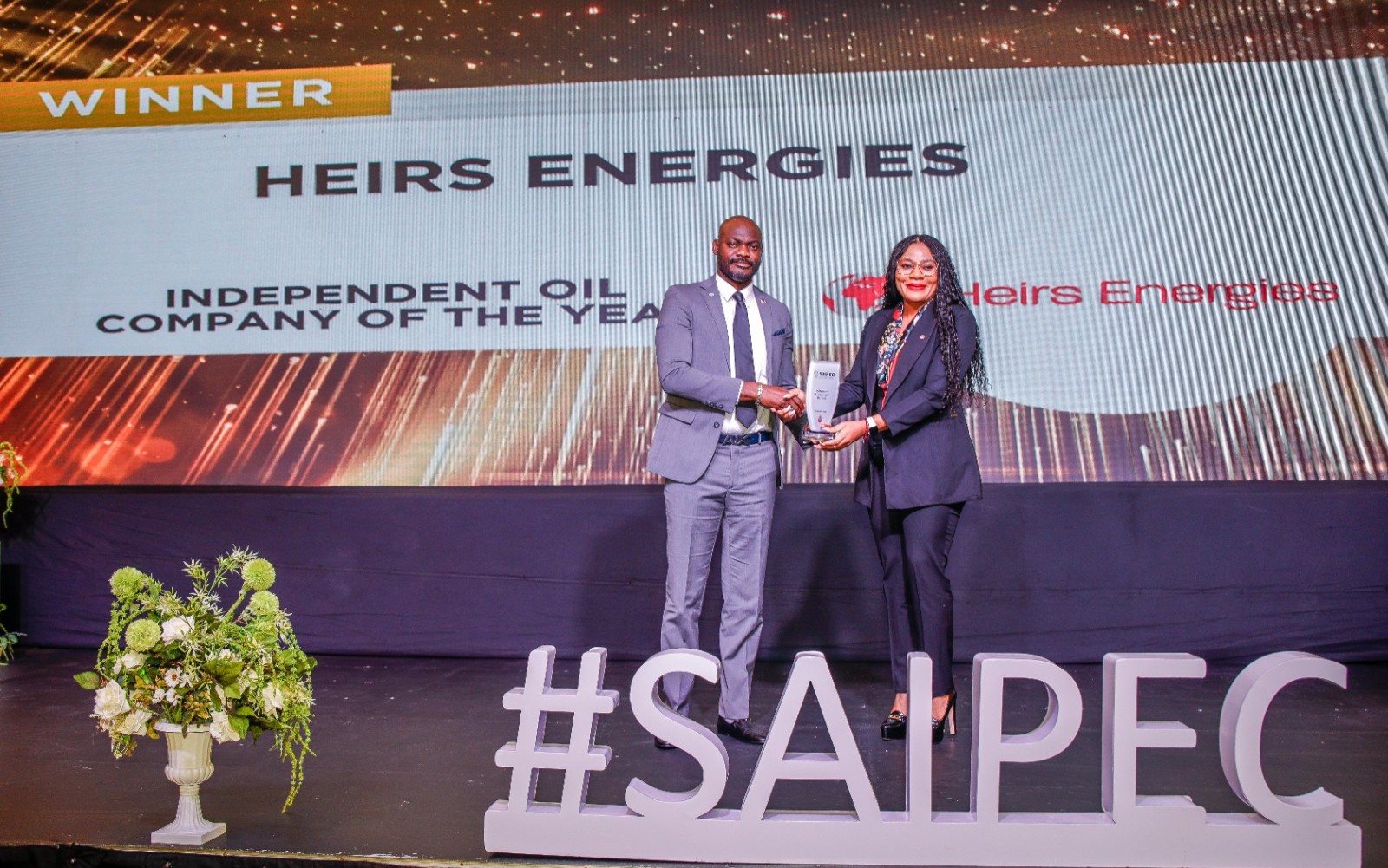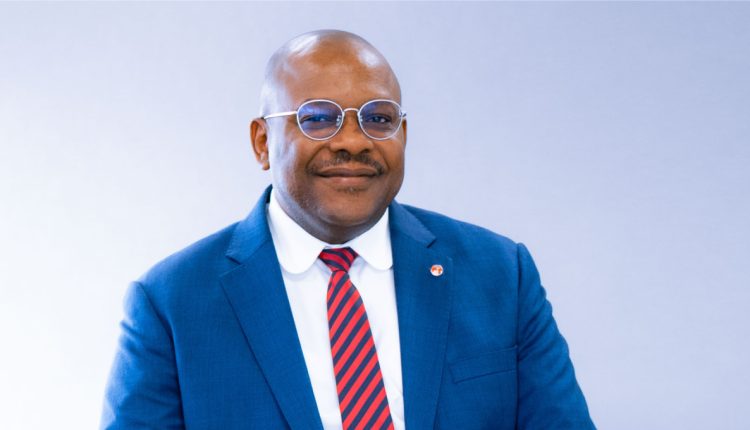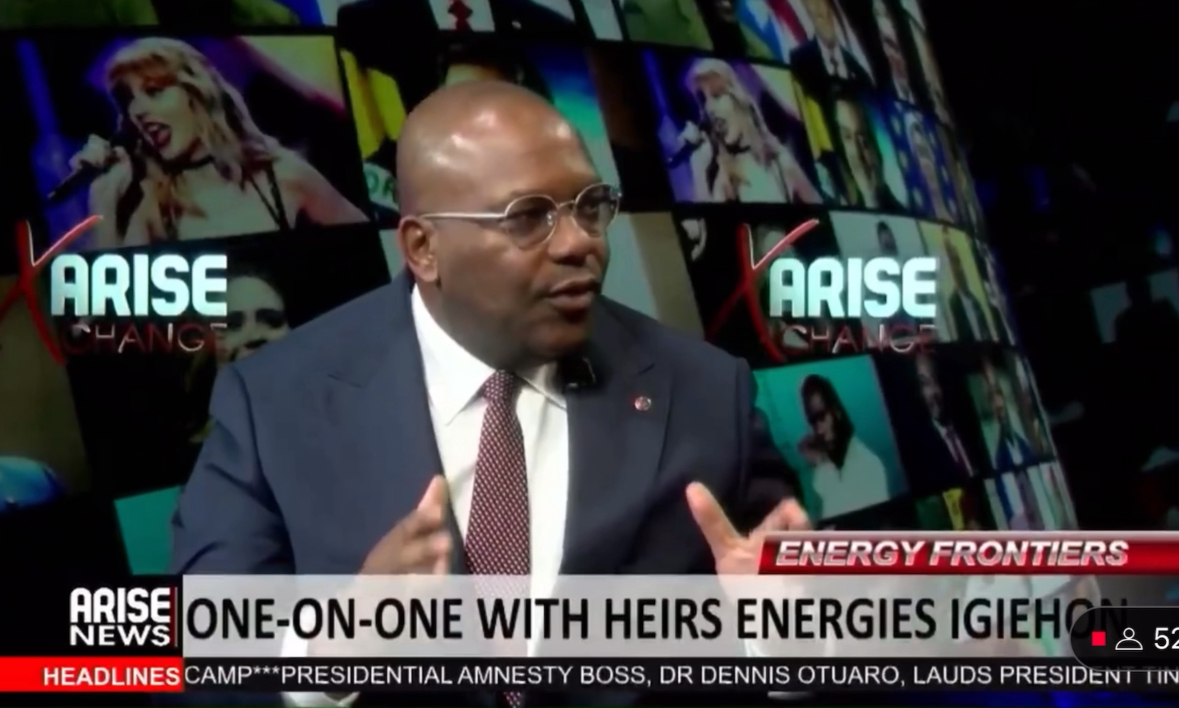…as the company looks to acquire additional assets, expand operations across Africa.
In this interview with Ndubuisi Micheal Obineme, Managing Editor of The Energy Republic, Engr. Osayande Igiehon, Heirs Energies CEO, speaks about his career journey in the global energy industry, as well as the super story behind the Heirs Energies operational excellence in the Nigerian energy, oil, and gas industry, coupled with the company’s ambitious target to acquire additional assets and expand operations across Africa.
The story of Heirs Energies started in 2021 when it acquired OML 17, a prime acreage located onshore in the Niger Delta. The company was seen as a new entrant in Nigeria’s energy, oil and gas industry.
Today, Heirs Energies has proved popular, and transformed from being a start-up company into Nigeria’s leading indigenous energy company through the leadership of Engr. Osayande Igiehon. Excerpts:
TER: Happy New Year to Heirs Energies! Engr. Igiehon, you have had an exceptional career journey having spent 27 years with Shell, rising to the Group Vice President position, with postings in Nigeria, Netherlands, Russia, and Gabon. How would you describe your career journey and its impact on your current leadership role as the CEO and Managing Director of Heirs Energies? What inspirations would you like to share from your working experience in the energy industry?
Igiehon: My career journey has been both transformational and deeply instructive, shaped by the diverse environments and cultures I encountered over nearly three decades with Shell, both at the regional and International levels. During that time, I was privileged to be based in Nigeria, the Netherlands, Russia, and Gabon. Additionally, I worked on focused assignments in many other countries, to the effect that I either consulted, taught, or audited in countries on all continents except South America. Each of the diverse operational settings I went through presented unique operational demands, cultural nuances, and geopolitical contexts. Taken together, these experiences cultivated my belief in the power of diversity, resilience, and long-term thinking.
Perhaps the most defining period of my career occurred in Gabon, where I served as the Country Chair and Managing Director. The stakes could not have been higher: we faced severe financial pressures triggered by low oil prices, and our immediate challenge was to ensure business continuity while safeguarding jobs and fostering local economic benefits. To achieve a rapid turnaround, I engaged directly with multidisciplinary teams – ranging from technical leads to community liaisons – and consistently emphasized the importance of value delivery and bottom-line impact. In less than a year, we stabilized operations, restored the economic fortunes of the company, rebuilt stakeholder confidence, and demonstrated that strategic collaboration and disciplined execution could deliver tangible results against formidable market headwinds.
These lessons profoundly shaped my leadership style – one grounded in strategic value framing, persistent delivery, accountability, innovation, and empathy. At Heirs Energies, these principles underpin our approach to revitalizing mature assets, optimizing production, and integrating environmental stewardship with economic growth. In particular, I rely on cross-cultural insights gained from my time in Russia and the Netherlands, where I witnessed firsthand how inclusive leadership practices and respect for local contexts can be a springboard for operational excellence.
When I reflect on the inspirations drawn from my work in the global energy sector, one theme resonates above all: people are at the core of any successful enterprise. Whether in the field or the boardroom, real progress happens when teams feel empowered to share ideas, learn from mistakes, and collaborate openly. The oil and gas industry, in particular, demands agility, resilience, and a willingness to rethink established norms. I have seen how even the most entrenched challenges can be overcome when individuals unite around a clear, shared vision.
My journey has also reinforced the power of aligning business imperatives with community aspirations. Energy projects do not exist in a vacuum; they affect people’s livelihoods, local ecosystems, and national development agendas. Leading a turnaround in Gabon taught me that social and environmental commitments can – and should – be catalysts for operational success. Today, I carry that conviction into every aspect of Heirs Energies’ mission, from our environmental safeguards to our community investment programs.
If there is one inspiration I’d emphasize, it would be that no obstacle is insurmountable if approached with clarity, conviction, and the right coalition of people. By embracing challenges as opportunities to refine our methods, empower our teams, and foster a culture of creativity, we not only enhance our immediate performance but also leave a lasting positive footprint in the communities where we operate. This outlook continues to guide my decisions and leadership approach at Heirs Energies, ensuring that our work delivers both robust returns and meaningful, sustainable benefits.
TER: Today, Heirs Energies has taken up the mantle as the operator of OML 17, accounting for 5% of Nigeria’s oil production and another 5% of gas production. Since you came on board, Heirs Energies has demonstrated remarkable operational excellence in growing its oil production from 27,000 to 52,000 barrels per day as well as increased its terminal delivery from three percent in December 2021 to 85 percent presently. What have been Heirs Energies’ driving force and cardinal focus areas leading to increased oil and gas production? What is your company doing to nurture these success stories?
Igiehon: Our remarkable operational gains at OML 17 – most notably, the increase in oil production from 27,000 to over 52,000 barrels per day and the boost in terminal delivery from 3% to over 85% – are the direct result of Heirs Energies’ strong commitment to strategic innovation, disciplined execution, resilience and purposeful collaboration with all stakeholders. At the core of our approach is the Brownfield Excellence (BFE) methodology, which draws on the frameworks that I have developed during my career on how to most efficiently maximize production from brownfields.
Brownfield Excellence (BFE) in Action
BFE centers on optimizing existing fields using rigorous technical frameworks, advanced data analytics, and a profound respect for local contexts. In the case of OML 17, this has meant thoroughly assessing legacy infrastructure, identifying quick-win opportunities for production enhancement, and pursuing targeted well interventions. We have also invested in:
Advanced Technologies: From well-completion techniques to digital field monitoring, we leverage cutting-edge tools to maximize output and minimize downtime.
Data-Driven Insights: Continuous reservoir surveillance and analytics inform decision-making, ensuring that interventions are both timely and cost-effective.
Operational Efficiency & Cost Optimization
A key priority has been the elimination of production bottlenecks and the reduction of non-productive time. By standardizing processes, embracing lean project management, and upskilling our workforce, we have significantly lowered operating costs without compromising on safety or environmental standards. This focus on efficiency is integral to delivering consistent, profitable growth despite market volatility.
Culture of Continuous Improvement
Underpinning our technical strategies is a workplace culture that celebrates innovation and accountability. Our employees are encouraged to question established norms, propose new solutions, and take ownership of results. This relentless drive for value and excellence fuels our ability to adapt quickly, correct course when necessary, and deliver sustainable outcomes that benefit both Heirs Energies, our Joint Venture partners, and our host communities.
Stakeholder Collaboration & Community Development
We recognize that true operational success extends beyond production metrics – it is equally about nurturing trust and fostering inclusive growth. Our close collaboration with community leaders, local businesses, and government officials has been pivotal in addressing shared challenges like crude oil theft and environmental risks. By partnering with these stakeholders and engaging them in constructive dialogue, we have built a sense of collective responsibility for safeguarding our operations.
Environmental Stewardship & Future-Focused Vision
Even as we grow production, we remain deeply committed to reducing our environmental footprint. Cutting-edge flaring reduction programs, the Nigerian Gas Flare Commercialisation Project, biodiversity conservation efforts, and responsible waste management are integral components of our operational framework. We see these measures beyond regulatory obligations but as strategic investments in the long-term viability of our fields and the well-being of the communities around them.
Nurturing Success for the Long Haul
Heirs Energies will continue to embed these practices in every facet of our business, from continued asset revitalization to new acquisitions and expansions. We firmly believe that when operational excellence, community empowerment, and environmental responsibility align, companies can unlock extraordinary value for themselves and the broader society. As we move forward, these principles will remain the cornerstone of our ability to deliver on our promises and create a lasting impact in Nigeria’s energy sector.
TER: How integrated and transparent are Heirs Energies Environmental, Social, and Governance (ESG) strategy and implementation process as well as its impact on stakeholders, especially communities?
Igiehon: At Heirs Energies, ESG is an integrated way of life. Our ESG strategy is fully integrated into every aspect of our operations, from planning and execution to monitoring and reporting. We believe that transparency and accountability are critical to building trust with our stakeholders, particularly the communities where we operate.
Environmental Stewardship: We are committed to minimizing our environmental footprint through sustainable practices and innovative technologies. For example, we have implemented measures to reduce flaring, manage waste responsibly, and protect biodiversity in our operational areas.
Social Responsibility: Our approach to community engagement is rooted in shared prosperity. We work closely with host communities to identify their needs and implement initiatives that promote education, healthcare, and economic empowerment. Our goal is to create a lasting positive impact and foster mutually beneficial relationships.
Governance: We adhere to the highest standards of corporate governance, ensuring that our operations are conducted with integrity, transparency, and accountability. Our governance framework includes robust risk management processes, ethical business practices, and regular stakeholder consultations.
The impact of our ESG strategy is evident in the strong relationships we have built with our stakeholders, and this has enhanced our operational performance and earned the trust and support of our communities.
TER: In 2022, Heirs Energies experienced the most challenging year when there were hard hit by crude oil theft at its operations in the Niger Delta region. What actions were taken to tackle the oil theft issue to a minimal level? What are the key lessons learned from the incident?
Igiehon: The year 2022 posed one of our greatest operational challenges, as crude oil theft in the Niger Delta threatened not only our revenue and production targets but also the social and environmental fabric of our host communities. Rather than view the crisis in isolation, we approached it as a catalyst for deeper collaboration, systemic innovation, and more robust community engagement.
To address the issue, we took a multi-faceted approach:
- Enhanced Security Measures: We partnered with Government security agencies and local communities to strengthen surveillance and protect our assets. This included deploying advanced monitoring technologies and increasing patrols in vulnerable areas.
- Community Engagement: We recognized that sustainable solutions require the involvement of host communities. By engaging community leaders and stakeholders, we were able to build trust and foster a sense of collective responsibility for protecting our operations.
- Operational Adjustments: We implemented operational changes to minimize vulnerabilities and improve infrastructure resilience.
- Collaboration with Industry Peers: We worked closely with other operators industry bodies and Government security agencies to share intelligence and best practices for combating oil theft.
The key lesson from this experience is the importance of collaboration and proactive risk management. By working together with stakeholders and leveraging technology, we were able to reduce oil theft to a minimal level and ensure the continuity of our operations.
TER: How can the Nigerian government and indigenous players collaborate to resolve crude oil theft in the Nigerian oil and gas industry? What strategic initiatives would you recommend as a structure for industry collaboration in addressing crude oil theft and pipeline vandalism?
Igiehon: The enduring challenge of crude oil theft in Nigeria’s oil and gas industry demands a cohesive strategy uniting government agencies, indigenous operators, host communities, and industry bodies. First and foremost, the government should champion collaborative frameworks that bring together security forces, regulatory authorities, and private sector expertise in a coordinated response. By creating a dedicated task force with clear mandates, shared intelligence capabilities, and real-time data exchange, operators can systematically address the vulnerabilities in pipelines, storage facilities, and transport routes.
Stakeholder engagement must also extend to the grassroots level. Empowering local communities through education, vocational programs, and direct economic incentives helps transform them into proactive partners in the fight against oil theft, rather than passive bystanders. Government-led policies should reinforce these efforts by enacting stricter legal frameworks and penalties that serve as a deterrent for criminal activities, while simultaneously rewarding communities that exhibit tangible progress in safeguarding assets.
Indigenous players can further strengthen collective resilience by jointly investing in technologies that enable early detection of leaks or tampering. When supported by consistent policy reforms, these innovations bolster operational security and reduce response times to theft incidents. Additionally, periodic industry roundtables would allow operators to share best practices and align on standards for pipeline reinforcement, early-warning systems, and community relations.
Ultimately, building a secure, theft-resistant environment hinges on the interplay of good governance, inclusive community development, robust technology adoption, and purposeful collaboration across every stakeholder group. By adopting a cohesive, long-term approach that recognizes the mutual benefit of stable operations and inclusive growth, Nigeria can significantly reduce crude oil theft and foster a healthier, more sustainable industry for all.
TER: Do you think having a Joint Venture (JV) between Nigerian indigenous companies would enhance the production & asset management of critical oil and gas infrastructures in Nigeria?
Igiehon: Absolutely. Joint Ventures between Nigerian indigenous companies can be a game-changer for the industry. By pooling resources, expertise, and capabilities, indigenous operators can achieve greater economies of scale, enhance operational efficiency, and drive innovation. JVs also provide an opportunity to share risks and rewards, making it easier to undertake large-scale projects and invest in critical infrastructure.
At Heirs Energies, we are open to strategic partnerships that align with our vision of sustainable energy development. We believe that collaboration among indigenous players is key to unlocking the full potential of Nigeria’s oil and gas sector.
TER: Beyond Nigeria, the African energy, oil, and gas industry has entered an era of growth opportunities following several developments across the oil and gas value chain in the continent. What are your projections on key factors to drive growth in Africa’s oil and gas industry?
Igiehon: Africa’s oil and gas industry is uniquely positioned to experience significant growth, thanks to abundant natural resources, a maturing regulatory environment, and rising demand for reliable, affordable energy across the continent. Several key factors will likely drive and shape this growth trajectory:
- Resource Potential and Exploration
Africa’s vast untapped hydrocarbon reserves both onshore and offshore present an immense opportunity for new discoveries and field developments. Strategic exploration investments, supported by more transparent licensing rounds, will continue to attract both indigenous companies and global industry players looking to diversify their portfolios.
- Natural Gas as a Bridge Fuel
With global energy markets pivoting toward cleaner sources, Africa’s considerable natural gas reserves can serve as a critical bridge in the continent’s energy transition. By developing gas infrastructure such as LNG facilities, distribution networks, and power generation plants, countries can bolster domestic energy security, reduce flaring, and lower their carbon footprint.
- Infrastructure and Logistics
Ongoing investments in pipelines, refineries, petrochemical plants, and export terminals are central to unlocking Africa’s energy potential. Improved infrastructure not only boosts operational efficiency but also expands access to new markets, both domestically and regionally. Public‑private partnerships, supported by multilateral financial institutions, can fast-track these projects and address existing bottlenecks.
- Local Content and Capacity Building
A strong focus on local content policies ensures that the wealth generated from the oil and gas sector circulates within African economies. By cultivating indigenous talent, encouraging technology transfer, and integrating local supply chains, African nations can strengthen their energy sectors from within and promote inclusive economic development. This approach also helps mitigate dependence on external expertise, making the industry more resilient over time.
- Diversification into Renewables
Even as the oil and gas sector remains vital, many African countries are beginning to invest in solar, wind, and other renewable energy sources. This complementary path not only helps meet domestic power needs more sustainably but also lays the groundwork for a more balanced and flexible energy mix in the long term. Oil and gas operators that embrace renewables and low-carbon technologies can position themselves as leaders in the emerging energy landscape.
- Regional Integration and Trade
Cross-border energy projects and harmonized regulatory frameworks can drive economies of scale, facilitate knowledge sharing, and accelerate industrial growth. Initiatives like the African Continental Free Trade Area (AfCFTA) create new pathways for collaboration and resource pooling. This regional focus is critical for smaller markets that may lack the scale to develop large energy projects independently.
Collectively, these factors underscore a dynamic moment for Africa’s oil and gas industry, one that requires strategic partnerships, balanced policy reforms, and a shared commitment to local development. By capitalizing on resource endowments, strengthening infrastructure, and fostering talent, African operators can not only drive robust growth but also shape a more sustainable, inclusive energy future for the continent.
TER: Are Heirs Energies considering acquiring another asset and expanding its operations in Africa in the future?
Igiehon: Yes, we are actively exploring opportunities to acquire additional assets and expand our operations across Africa. Our goal is to build a diversified portfolio of high-quality assets that align with our vision of sustainable energy development that will meet the unique energy needs of Africans.
TER: Are there any projects Heirs Energies is involved in that you would like to share with us?
Igiehon: where we have already demonstrated substantial gains in production, operational efficiency, and community engagement. Our Brownfield Excellence (BFE) methodology, which integrates rigorous technical evaluations with streamlined project execution, has been pivotal in optimizing well performance, reducing downtime, and enhancing infrastructure reliability. As a direct result, we have doubled our daily oil output in a relatively short span, strengthening our position as a key player in Nigeria’s energy landscape.
Beyond OML 17, we are actively investing in gas development to support Nigeria’s broader energy needs. By capturing and commercializing gas that would otherwise be flared, we not only reduce our carbon footprint but also bolster local power generation and industrial growth. In parallel, we continue to explore renewable energy opportunities—such as solar and potential hybrid solutions—aimed at diversifying our portfolio and further aligning with global sustainability targets. These projects underscore our dual objective of maximizing near-term production while fostering long-term economic and environmental benefits for our stakeholders.
TER: What should the African Energy Bank prioritize to support indigenous companies in terms of project development? What funding strategy could be adopted to ensure the Bank’s financial instruments are allocated efficiently on projects across the African continent?
Igiehon: To accelerate the development of indigenous energy projects across Africa, the African Energy Bank must strike a balance between commercial viability and developmental impact. This entails prioritizing affordable, long-term financing solutions; offering capacity-building programs tailored to local realities, and deploying risk-mitigation tools that encourage private sector investment.
Firstly, affordable access to capital is paramount. Energy projects often involve significant upfront costs with extended timelines before realizing revenue. Providing patient capital—through low-interest loans, longer repayment schedules, or equity-like instruments—enables Indigenous operators to commit to larger and more strategic projects while maintaining stable cash flows.
Secondly, capacity-building programs are critical for enhancing the technical, managerial, and governance capabilities of local companies. By collaborating with multilateral agencies, NGOs, and industry experts, the Bank can fund training initiatives and mentorship schemes that strengthen skills in areas such as project financing, engineering, environmental compliance, and stakeholder engagement. An ecosystem of capable local players fosters both innovation and resilience, ultimately supporting the Bank’s own investment outcomes.
Thirdly, risk-mitigation instruments—such as guarantees, partial risk insurance, and co-financing mechanisms—help de-risk projects that might otherwise struggle to secure traditional financing. Leveraging these instruments to offset exploration, developmental, or geopolitical risks can attract broader participation from commercial lenders, private investors, and international partners, thereby expanding the pool of available capital.
Additionally, support for project pipeline development can streamline the identification and structuring of bankable ventures. By actively collaborating with governments, industry bodies, and local communities, the Bank can set clear eligibility criteria, align on permitting requirements, and facilitate regulatory approvals. This process not only reduces bureaucratic bottlenecks but also ensures investments are channeled toward initiatives with genuine social and economic value.
Finally, regional collaboration and an inclusive funding strategy are vital. Encouraging cross-border energy projects, harmonizing standards among neighboring countries, and fostering power-pooling agreements can maximize impact and promote regional integration. Such efforts unlock economies of scale, reduce duplication, and make the most of shared resources—including knowledge, infrastructure, and human capital.
Taken together, these measures position the African Energy Bank as a pivotal facilitator of sustainable growth. By tailoring financial instruments to local conditions, cultivating expertise on the ground, and incentivizing collaborative ventures, the Bank can ensure that indigenous African operators thrive—and, in turn, fuel broader economic and social development across the continent.
TER: What are Heirs Energies’ main priority areas in 2025 and beyond?
Igiehon: Heirs Energies’ strategic roadmap for 2025 and beyond revolves around several intertwined objectives that emphasize resilience, growth, and sustainability. First and foremost, we will continue to optimize our brownfield assets, leveraging our Brownfield Excellence (BFE) methodology to drive sustained production growth while maintaining a relentless focus on operational safety and efficiency. Building on the success of OML 17, we aim to scale up these proven practices, explore new fields, and deepen our capability to revitalize underutilized assets across Nigeria and the broader African continent.
Equally important is our commitment to advancing energy sufficiency by expanding gas development projects, reducing routine flaring, and investing in cleaner energy solutions. Although hydrocarbons remain integral to our near-term growth, we are strategically positioning ourselves to align with emerging low-carbon opportunities—both to reduce our environmental footprint and to ensure we remain competitive in a rapidly evolving energy landscape.
Another core priority is long-term stakeholder value creation, underpinned by a deep sense of social responsibility. This means continuing to build meaningful partnerships with host communities, investing in education and skills training, and fostering local entrepreneurship. Through these efforts, we aim to secure our social license to operate while creating a more inclusive, prosperous environment for all stakeholders.
Furthermore, innovation and technology adoption will be essential for delivering on our production and sustainability targets. We are committed to deploying advanced digital tools, data analytics, and automated systems that enhance well surveillance, reduce operational bottlenecks, and optimize resource recovery. This culture of continuous improvement—encouraging employees to challenge traditional methods and propose innovative solutions—will help us stay ahead of market fluctuations and regulatory demands.
Finally, we will continue to expand strategically, assessing acquisition opportunities and partnerships that align with our vision of sustainable energy development. Our goal is to cultivate a diversified and resilient asset portfolio, one that balances oil and gas projects with emerging renewable options. By marrying consistent operational performance with thoughtful ESG integration, Heirs Energies aspires to remain a frontrunner in shaping Africa’s energy future well into the coming decades.
TER: You will be speaking at the Sub-Saharan Africa International Petroleum Exhibition and Conference (SAIPEC) 2025 conference. What will be your major talking point?
Igiehon: At the 2025 Sub-Saharan Africa International Petroleum Exhibition and Conference (SAIPEC), my primary focus will be on how innovation and strategic collaboration can accelerate sustainable energy development across Africa. Drawing on Heirs Energies’ successes – particularly our Brownfield Excellence methodology and experience revitalizing mature assets like OML 17 – I plan to illustrate the practical steps operators can take to drive near-term operational gains while simultaneously preparing for a more diversified, low-carbon future.
I will emphasize the importance of building robust partnerships, not only among industry peers but also with host communities, local service providers, and governmental bodies, as genuine collaboration is vital for tackling issues such as infrastructure gaps and crude oil theft. Moreover, I will discuss how to blend technological advancements such as digital well surveillance and data analytics with long-standing community engagement strategies to foster inclusive growth. By sharing these insights, I hope to inspire other African operators to pursue both financially viable and environmentally responsible solutions, ultimately bolstering the region’s energy security and long-term competitiveness.
TER: How important is SAIPEC to your company’s deliverables and what will Heirs Energies showcase at this year’s SAIPEC?
Igiehon: SAIPEC holds significant strategic value for Heirs Energies, as it offers an influential platform to engage with industry peers, government officials, and potential collaborators across the African energy sector. By participating in this event, we can both share our insights on operational best practices and learn from others who are tackling similar challenges, whether that involves new technology deployment, community development, or sustainable energy initiatives.
This year, we will showcase the tangible outcomes of our Brownfield Excellence methodology, highlighting the work done at OML 17 and our broader commitment to operational excellence, environmental stewardship, and social responsibility.
Our goal is not only to demonstrate what we have achieved thus far but also to foster valuable partnerships that support continued growth and transformation across the entire African energy landscape.
Source: Energy Republic


